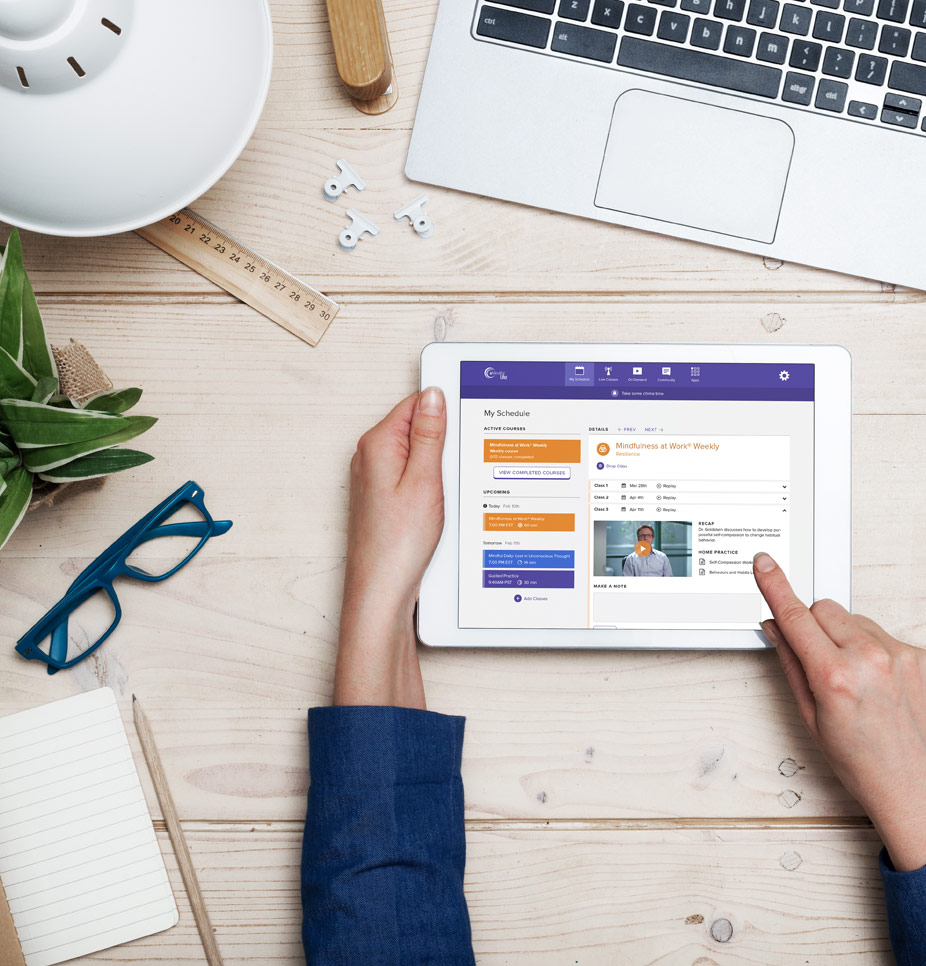eMindful has launched its evidence-based programme to help people recover from all types of addictive behaviours as well as lower healthcare costs

eMindful announced the launch of its program to help people recover from all types of addictive behaviors (Credit: eMindful)
Online wellness provider eMindful has announced the launch of a programme to help people recover from addictive behaviours.
Through live online courses led by experts in various additions involving webinar-style classes that users can access either on a mobile device, at home or on work computers, it allows each user to create a custom experience based on their individual needs.
In the past, eMindful has run classes ranging from stress management to weight loss, as well as looking at chronic conditions like diabetes and smoking cessation.
Dr Mark Pirtle, an eMindful instructor, said: “Mindfulness is a powerful tool for addiction that enables individuals to make every moment matter while building healthy coping skills.
“The applied mindfulness practices taught in this programme help individuals make more purposeful decisions about their health ultimately lowering associated costs.”
According to the National Institute on Drug Abuse, addiction is an epidemic in the US, with almost 21 million Americans having at least one addiction, yet only 10% of them receive treatment – costing more than $740bn annually.
Tobacco, alcohol and drug use cause or contribute to more than 70 other conditions requiring medical care, which drives healthcare costs.
The Mindfully Overcoming Addictive Behaviors programme
Mindfully Overcoming Addictive Behaviors is a live, ten-week, evidence-based course for individuals who are struggling through the various stages of addiction of all kinds, including substance use, emotional eating, shopping and gambling.
Addiction is a psychological and physical inability to stop consuming or doing a chemical, drug, activity, or substance, even though it is causing psychological and physical harm.
As some addictions also involve great difficulty in stopping, such as gambling, eating, or working, the programme will help participants to develop self-awareness skills to identify the triggers, obstacles and pain behaviours associated with addictive behaviours.
The session aims to create a strong foundation by examining the behaviours associated with addiction and applying mindfulness practices to effectively manage impulses and shift limiting mindsets to healthier habits.
Dr Pirtle said: “Participation in peer support groups has been found to lessen feelings of isolation, increase practical knowledge and sustain coping efforts, but it is not always convenient to travel to meetings.
“eMindful delivers that accountability, connection and community through the phone while allowing participants to remain anonymous from the comfort of their home.”
The course begins on 30 July 2019, which also includes guided meditations and exercises to practice between sessions.
